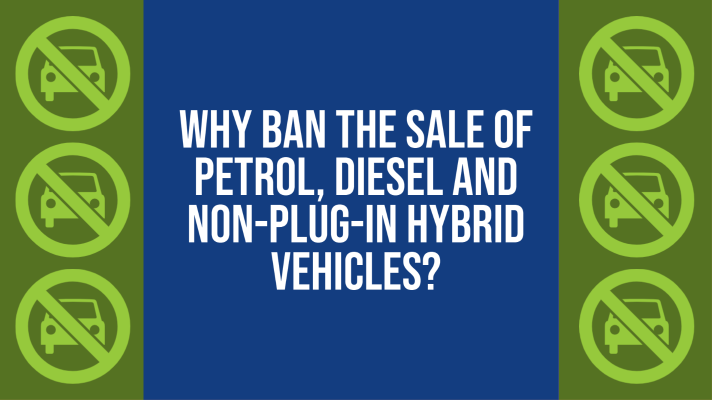Why Ban Petrol Cars? Petrol, Diesel, and Non-Plug-In Hybrids get the Boot
An extraordinary decision has been made in the UK, that will set a clear, ambitious and achievable path towards the rise of the electric vehicle revolution and clean up the air of our cities! The UK has laid out plans to ban the sale of petrol, diesel, and non-plug-in hybrid vehicles by 2030. So, why ban petrol cars and all the rest?
Following a recent BEIS report, the United Kingdom’s transport industry has only reduced its greenhouse gas emissions by around 5% since 1990; on the other hand, the UK energy supply has accomplished over 60% reduction in the same emissions since 1990. Furthermore, cars are considered a dominant contributor to outdoor air pollution, and they are predicted to cause around 40,000 premature deaths each year, costing the NHS billions.
In addition, a slight increase in long-term vulnerability to air pollution is correlated with an 11% increase in Covid deaths; hence it is vital we begin reducing these figures.
Why ban petrol, diesel and hybrid vehicles?
There are a large variety of alternative electric vehicles to choose from; they are fun to drive, economical and critical for the government to reach their commitments to their net-zero targets. Not to mention, after the first lockdown, a whopping 1 million cars took the road once again; more and more people were driving to work, seeing family members and holidaying throughout the UK.
Due to demand, many countries have endeavoured to use electric vehicles over petrol and diesel. Therefore, it is imperative that we carry on emphasising the importance of needing clean, green cars to protect our country from becoming a toxic waste ground for old diesel and petrol vehicles. The ban on the sale of ICE vehicles has made a significant impact in reaching the required targets; it saw a 60% decline in NO2 during the lockdown and saved an estimated 40% reduction in the average NO2 pollution as well as a 10% reduction in the average level of particulate matter in just 30 days.
Are electric vehicles expensive?
To put it simply, yes, electric vehicles are currently more expensive than ICE vehicles when upfront costs are compared. However, by using salary sacrifice car schemes, you can significantly reduce your costs.
Additionally, whilst owning your EV, you will notice a lower total cost of ownership; some of the benefits of an electric vehicle include:
- Up to 90% savings on fuel.
- No road tax costs during the first year.
- No congestion or ULEZ charges.
- Up to 50% savings on maintenance.
- £2,500 plug-in car grant.
- £350 OLEV charger grant.
- 0g/km CO2 tailpipe emissions.
Following the above, it is also noted that customers save between 30-40% on their monthly car costs, some reaching £10,000 over three years when partaking in a salary sacrifice scheme.
There are plenty of ways to beat the ban, from checking out the 100% electric salary sacrifice scheme for your business to joining free workshops to see what making the switch really means for you.
Many companies are there to help make the switch a lot easier by providing expert advice on the next steps in your electric car journey or discussing how you can work together to maintain a more sustainable society. Get in touch with us today to find out more from Fleet Evolution.
Tags : Air Pollution, Diesel, electric car, electric vehicle, emissions, EV, green cars, Greenhouse gas, Greenhouse gas emissions, Hybrid, ICE vehicles, Net-zero targets, Petrol, Salary Sacrifice, Self-charging hybrid, Transport industry

